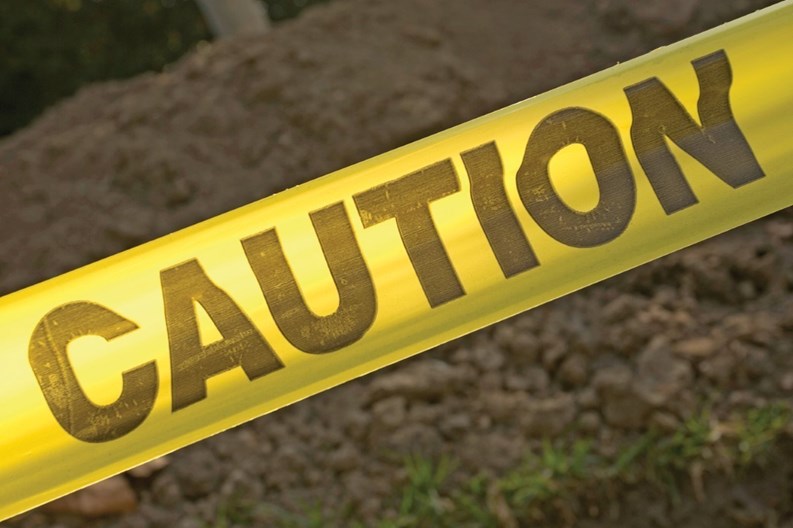When safety or security lapses occur in a community association setting, the assigning of blame will often cast managers and board members in a bad light, and can also result in major lawsuits.
But many common lapses can be easily prevented, experts say, with a little knowledge and attention to detail. Below is a list of ten common mistakes that may soon occur on your properties, as well as ways to prevent them.
Mistake #1 – In Too Deep? (Make pool security a top priority, especially when children are involved.)
According to the American Red Cross, pool drowning is a leading causeof death for children under five. In many such cases, children were under the care of one or more parents at the time of the incident and were out of their parents’ sight for less than five minutes.
For condo management, reliable pool security measures could easily be a life or death matter when kids are involved. “Pools should be surrounded with a fence or barrier that is at least four feet high and a self-closing, self-latching gate,” explains Dr. Paul Myers, Red Cross senior preparedness associate. “Children are very curious and if they’re not allowed to go somewhere, it kind of makes it a little more appealing.” Management should also consider installing a lockable barrier that encloses the top of a hot tub – one that will notcollapse under the weight of a child – and underwater alarms (that detect when an object falls into the pool) to ensure the safety of the pool area.
Mistake #2 – It’s A Gas! (Install carbon monoxide detectors throughout each condo unit.)
Carbon monoxide kills – quickly. Common symptoms of low-level exposure include nausea, headache, and drowsiness, with those exposed to a significant quantity of the gas easily losing consciousness in less than 20 seconds.
The so-called “silent killer” is invisible, odorless, and tasteless, resulting in nearly 500 U.S. deaths annually. And senior citizens, studies show, are even more susceptible to carbon monoxide death than their younger counterparts. The gas is commonly expelled from faulty furnaces and heating appliances, making carbon monoxide a deadly concern to any condo association that must not be overlooked.
In compliance with National Fire Protection Association guidelines, management should ensure that carbon monoxide alarms are installed on every level of each condo unit, with additional alarms placed outside each separate sleeping area. While individual detector units are available, the best protection, officials say, can be gained by installingan interconnected system throughout each unit. When one alarm sounds, they all sound.
Mistake #3 – Smoke Gets In Your Eyes (Test smoke alarms frequently. No, really!)
Each year, nearly two-thirds of home fire deaths result from fires in homes without working smoke alarms. And despite repeated government-sponsoredpublic service reminders, many Amer-icans would have to admit they rarely test the smoke alarms in their homes.
For minimum safety coverage, smoke alarms should be installed in every sleeping room, outside each separate sleeping area, and on every level of each condo unit. Larger units may require additional smoke alarms to provide a minimum level of protection. Just as with carbon monoxide detectors, the most effective protection can be obtained through the use of an interconnected smoke alarm system. (Manymanufacturers now offer wireless, battery-operated systems that allow managers to interconnect alarms in each unit without the hassle of additional wiring.)
Recent research has shown that older condo dwellers may have difficulty in hearing high-pitched sounds, and management should bear this in mind when updating or installing new alarmsystems. Many systems are now available that produce a lower frequency alarm tone – the type now believed most effective for ears of all ages.
Mistake #4 – Know Your Neighbors? (Involve your residents in a Condo Watch program.)
“I think something that gets overlooked a lot of times is people don’t know their neighbors as well as they have done in the past,” says Dr. Myers. “Maybe a few decades ago you’d really know your neighbors well – you’d know the neighbors, you’d know their names, you’d know when they went on vacation.”
Yet the concept of Neighborhood Watch, a once ubiquitous notion in suburban Americana, seems to have fallen by the wayside in recent years and is even less likely to be practiced in a condo setting. “People say [their] condo is patrolled by security officers and so they think that means they don’t need to pay attention to safety. Or maybe they had a neighborhood watch or association watch for the condo and, as people left, no one filled those positions,” says Michelle Boykins of the National Crime Prevention Council. “From a management company perspective it’s really helpful to them to encourage their condo community to get involved in a watch program becausethat helps them be able to promote safety throughout the community.”
Mistake #5 – You DO Have To Know The Language! (Be sure you can get the message across quickly in an emergency.)
Communication is the lifeblood of successful condo management, as many potentially hazardous situations can be averted through good communication. “We have the ability to send one phone message to an outside firm and they can send that to all the owners or residents of a property,” says David J. Levy, PCAM, president of the Holliston, Massachusetts-based Sterling Services. And the cost for this type of automated notification service? “Shockingly low,” Levy remarks. “We do it at cost. It’s a very meager cost. It’s less than $.50 per resident per year for unlimited phone calls.”
Furthermore, Levy notes, some properties may require special effort in getting the word out in time of emergency. “We have one property,” he explains, “where the primary language is not English. It’s Portuguese-Brazilian primarily. So what we did is we have an ability to translate, but besides thatwe set up an information line and emergency information line where residents can check-in for emergency information.”
Mistake #6 – Expecting a Miracle (Plan ahead for disaster situations. Help might not be “on the way.”)
The events of recent years have shown that government agencies may not be able to provide immediate response in the face of large-scale disasters. “People had the misconception that if a major emergency happened, the government would step-in in a few hours with the helicopters and boats and everything and rescue you,” recalls Dr. Myers. “[Hurricane] Katrina showed a lot of people that it might take a while for thegovernment to get to you. In reality, in a major disaster, it can be three to five days before the government can actually get to you.”
Management should work to ensure that condo residents have proper food/ water provisions to survive three to fivedays in a disaster, and that a proper escape plan is in place should evacuation become necessary. Planning ahead will save headaches – maybe even lives – in a disaster situation.
Mistake #7 – Don’t Be In the Dark! – (Maintain well-lighted common areas. Then encourage residents to report any suspicious activities to officials, not just emergencies.)
Managers should pay close attention to the lighting around the community. “Lighting really helps to keep burglars from being in the dark and being under concealment, notes Boykins. “If you think there’s something you should tellthe police or you see some potentially suspicious activity in the area but you don’t think it warrants calling 911, you may still want to report that to law enforcement to be able to come and check it out.”
Mistake #8 – Don’t Know Much About… First Aid? (Organize basic first aid/CPR classes for your residents.)
In 2009, 62% of all unintentional-injury deaths occurred in or near the home with leading causes including poisoning, drowning, and choking. According to National Safety Council data, 1 in every 15 Americans will experience a serious injury in or near the home, yet studies say relatively few adults possess the CPR and first aid skills needed to save a life when emergencies occur.
A 2008 survey by the American Heart Association found that most Americans didn’t believe they could perform cardiopulmonary resuscitation or use a home defibrillator to save a life in an emergency. While 89% of those surveyed said they would be willing to attempt CPR, only 21% felt competent to do so.
Condo managers should consider the possibility of organizing basic first aid/ CPR classes on-site for condo residents. A phone call to local fire or police officials may be all that is needed to arrange such classes. Otherwise, inexpensive course materials are available from the National Safety Council website.
Mistake #9 – Letting Your Guard Down (Encourage residents to be vigilant about parking security.)
“The biggest thing is to lock your car doors and roll up your windows,” explains Boykins, who recently experienced a string of auto thefts and burglaries in her own gated community. “There was no car actually broken into in my neighborhood where the car thefts and property thefts happened. All those cars were unlocked – a door left unlocked or a window left half rolled up or what have you. They werevery easy targets.”
Condo managers should actively encourage residents to roll up windows, lock car doors, and never assume theircar is safe simply because a property may be gated or have security guards.
After all, many gated communities are only “gated” to the outside – the automatic exit gates seen in many condos make it simple for a would-be car thief to drive away unnoticed after the crime. “Just because you have a gate or you may have security that patrols in your condo or apartment complex, doesn’t necessarily mean that you should relax about your own security and safety,” says Boykins.
Mistake #10 – Don’t Be A Wallflower! (Get involved with the larger community and build relationships…before you need them.)
For longtime property managers like David J. Levy, relationship building and community involvement are keys to a successful outcome in time of emergency. “You have to find a way to have the universe larger than yourself,” he notes, “larger than your firm, largerthan the Board of Trustees.”
On Levy’s properties, regular community socials are hosted, giving a way for residents and trustees to build relationships with first responders and other officials in a casual environment. “The fire department comes, the kids get up on the ladder truck, they take pictures with the fire department and the police come. We have that in most towns [and] we have the Lions Club with the eye testing and blood pressure testing. We’re not an annoyance on municipalities,” Levy explains. “And if you doit on the human level and you know them in advance, when you do have an emergency it can make responding to the emergency a lot easier.”
Matthew Worley is a freelance writer and a frequent contributor to New England Condominium magazine.







Leave a Comment